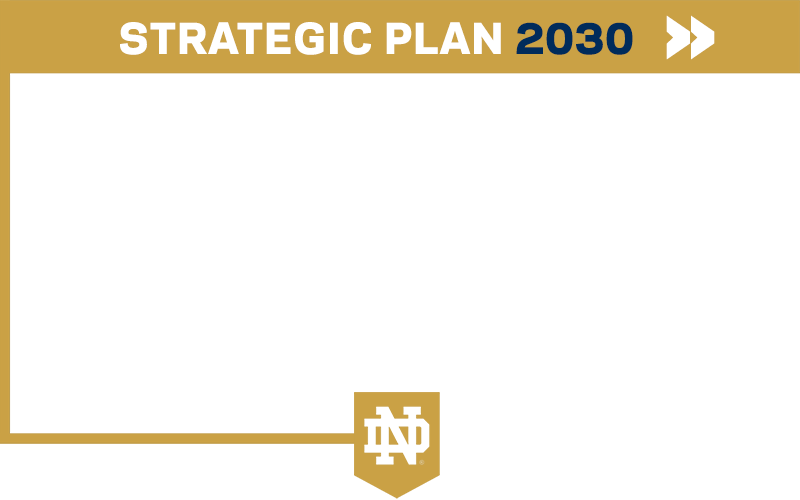
Strategic Plan 2030
Strategic Plan 2030
The mission of the Keough School—to advance integral human development—is decisive for how we conceptualize research, teaching, policy and practice, advocacy, and global partnerships.
Our commitment to integral human development (IHD) requires that we seek solutions in ways that promote the common good and prioritize the needs of the most vulnerable and marginalized. It requires that we meet fundamental demands with respect to how policies, practices and processes of development, poverty-alleviation, sustainability, peacebuilding and governance are designed, implemented and evaluated.
We ask: what difference would an IHD approach make to these practices and policies?
The Keough School’s Strategic Plan 2030 sets forth a bold vision of a policy school with a difference, and specifies goals and objectives to be achieved over the next seven years.
Inspired by our mission, the Keough School’s strategic plan sets forth ambitious goals to enhance the global influence of Notre Dame’s policy school through research, teaching, and partnership.

Research
The world today faces multiple challenges to human dignity. Such challenges demand policies and practices shaped by thinking that is systemic, multidisciplinary and interdisciplinary, ethically informed, and deeply attentive to cultural and historical contexts, including the contributions of faith traditions on normative questions.
-
We will deepen our scholarship directed to the concept of integral human development.
-
We will prioritize research projects with colleagues in the Global South.
-
We will expand doctoral and postdoctoral programs to train the next generation of leaders.
-
We will incentivize and support multidisciplinary and interdisciplinary research.
-
We will strengthen and extend research and teaching in four core research programs.
Core Research Programs
Sustainability and Environmental Justice
This program involves research on climate vulnerability and adaptation, the food–energy–water nexus, land use economics and policy, the differential impact of the environment on gender, racial, ethnic and other groups, the evaluation of social-environmental change and policy interventions, poverty-natural resource linkages, and just and sustainable energy transitions.
Poverty, Inequality, and Marginalization
This program draws on the integrated perspectives of scholars from different disciplines, prioritizing on-the-ground contexts, the people and communities experiencing hardship, and the intersection of poverty with gender, ethno-racial and other kinds of marginalization.
Democracy, Governance, Institutions, and Rights
This program examines local and global threats to democracy and explore how best to build and support effective states, expand political participation, strengthen the rule of law, improve the protection of human and civil rights, and enhance cooperation across national borders.
Systems and Structures of Violence and Peace
This program seeks to advance knowledge of the causes of violence, build durable partnerships across ethnic, class, religious, gender, and racial boundaries, and strengthen institutions and social processes such as conflict mediation and peace accord design and implementation to promote justice and peace.

Teaching
Because contemporary challenges are not bound by the perspective of any one country, language, culture, religion, or discipline, students must learn to address these issues in a holistic way through a wide array of courses, experiential and cross-cultural learning opportunities, and interactions with international scholars, policymakers, and cultural leaders.
-
We will deepen courses and co-curricular offerings around our core research themes.
-
We will develop an honors track for our undergraduate majors.
-
We will support undergraduate students as they seek to understand and pursue career paths.
-
We will expand our i-Lab program in service of preparing masters students for a global employment landscape that demands integrated professional skillsets.
-
We will expand doctoral and postdoctoral programs to cover other dimensions of development and global affairs as articulated in the four core research programs.

Partnership
Effective, inclusive and respectful partnerships that advance the agency of the most marginalized in the framing, investigation and solving of problems are key to achieving societal impact that aligns with the values of IHD.
-
We will develop policy-relevant, capacity-building programming for faculty, graduate students, and postdoctoral students.
-
We will support external engagement by bolstering capacity in knowledge management, research translation, outreach, and new technologies.
-
We will establish a carefully targeted visiting fellows program that builds regular interaction with policy practitioners.
-
We will expand our partnerships across the globe through alumni networks, Notre Dame global gateways, and research partnerships with universities and research institutes in the Global South.
A force for good in the world
Public-facing scholarship and teaching, multi-and interdisciplinary policy-relevant research, collaboration with local and global partners and stakeholders—these are features of the very best global and international affairs schools. The Keough School’s emphasis on the plight and participation of the most vulnerable members of society—a number that has increased markedly in recent years and seems destined to rise even more dramatically in the near to midterm—demands of us an exceptional dedication to rigor and to compassion.
By articulating a clear normative mission and a bold vision for transformative research, teaching, and global public engagement, the Keough School stands ready to advance Notre Dame’s highest aspirations to be a force for good in the world.